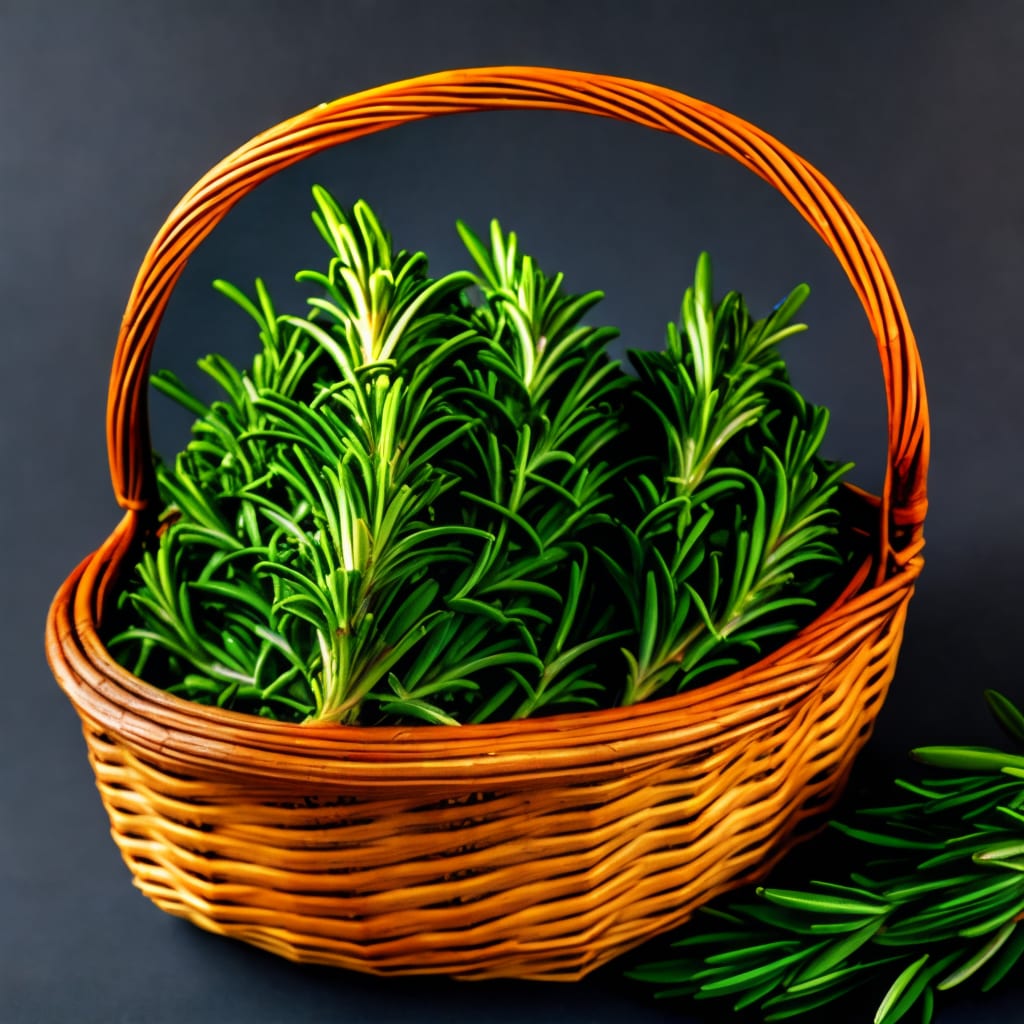
Section 1: Introduction
Rosemary (Rosmarinus officinalis) is a versatile and aromatic herb that has been cherished for centuries for its culinary and medicinal properties. This article introduces Rosemary, exploring its origins, growth characteristics, and its significance as a beloved backyard plant that adds both flavor and fragrance to a variety of dishes.
Section 2: Nutritional Values and Health Benefits
Beyond its culinary appeal, Rosemary also offers several nutritional values and potential health benefits. In this section, we uncover the nutritional profile of Rosemary and delve into its potential contributions to overall well-being.
Nutritional Profile:
Rosemary is a rich source of antioxidants, vitamins, and minerals. It contains compounds like rosmarinic acid and carnosic acid, which possess antioxidant properties that help combat oxidative stress in the body.
Digestive Health:
Rosemary has traditionally been used to support digestive health. Its natural compounds may help stimulate digestion, relieve bloating and indigestion, and promote overall gut health.
Cognitive Function:
Rosemary has been associated with potential cognitive benefits. Its aroma is believed to have stimulating properties that can enhance focus, memory, and concentration. Inhaling the scent of Rosemary or using Rosemary essential oil may help support cognitive function.
Anti-Inflammatory Effects:
Rosemary contains anti-inflammatory compounds that may help reduce inflammation in the body. Regular consumption of Rosemary or its extracts may contribute to overall inflammation management.
Section 3: Culinary Versatility
Rosemary (Rosmarinus officinalis) is a versatile herb that brings a delightful and aromatic flavor to a wide range of culinary creations. In this section, we will dive into the various ways Rosemary can be incorporated into cooking, unlocking its culinary versatility and inspiring creative cooks to experiment with this flavorful herb.
Savory Seasoning:
Rosemary is renowned for its ability to enhance the flavors of savory dishes. Its robust and woody aroma complements a variety of ingredients, from meats and vegetables to soups and stews. Sprinkle fresh or dried Rosemary leaves over roasted potatoes, grilled chicken, or roasted vegetables to infuse them with a fragrant and savory essence.
Herbaceous Marinades:
Rosemary adds a delicious herbaceous note to marinades. Combine Rosemary with olive oil, garlic, lemon juice, and other herbs to create a flavorful marinade for meats, fish, or vegetables. Allow the ingredients to infuse for a few hours or overnight to enhance the flavors.
Infused Oils and Vinegars:
Rosemary-infused oils and vinegars can elevate the flavors of your culinary creations. Simply add fresh Rosemary sprigs to a bottle of olive oil or vinegar and let it infuse for a few weeks. The resulting infused oil or vinegar can be used to dress salads, marinate meats, or drizzle over roasted vegetables for an aromatic and flavorful touch.
Herb-Rubbed Meats:
Rosemary makes an excellent addition to herb rubs for meats. Combine finely chopped Rosemary leaves with other herbs, such as thyme, sage, and garlic, to create a flavorful rub for beef, lamb, or pork. Massage the herb rub onto the meat before grilling, roasting, or pan-searing to impart a delicious and aromatic flavor.
Fresh Herb Infusions:
Rosemary can be used to infuse flavors into various culinary preparations. Add a few sprigs of fresh Rosemary to stocks, soups, or sauces while they simmer to infuse them with its distinctive flavor. The heat will release the aromatic oils from the herb, infusing the dish with a rich and earthy essence.
Bread and Baked Goods:
Rosemary adds a delightful twist to bread and baked goods. Sprinkle chopped Rosemary leaves over focaccia, breadsticks, or pizza dough before baking to infuse them with a savory and aromatic note. You can also incorporate Rosemary into savory scones, biscuits, or cornbread for a unique flavor profile.
Herbal Butter and Marinades:
Combine softened butter with finely chopped Rosemary leaves to create a flavorful herb butter. Spread it on bread, melt it over grilled steaks, or use it to finish roasted vegetables. Rosemary-infused butter adds a burst of herbaceous goodness to any dish. Similarly, mix Rosemary with olive oil, lemon juice, and other herbs to create a tangy marinade for chicken, fish, or vegetables.
Flavorful Skewers:
Rosemary sprigs can be used as skewers for grilling or roasting. Remove the leaves from a sturdy Rosemary sprig, leaving a small tuft of leaves at one end. Thread meat, seafood, or vegetables onto the sprig and cook them as desired. The Rosemary skewer infuses the ingredients with its aromatic flavor as they cook.
By exploring the culinary versatility of Rosemary, creative cooks can unlock a world of flavor possibilities. Whether used as a savory seasoning, infused into oils and vinegars, or incorporated into bread and baked goods, Rosemary brings its distinctive and aromatic character to every dish.
Note: While Rosemary is generally safe for consumption, it is advisable to use it in moderation and consult a healthcare professional if you have specific health concerns or conditions. Additionally, ensure you source Rosemary from reputable sources and wash it thoroughly before use.
Section 4: World of Cuisine
Rosemary finds its place in various cuisines around the world, adding its distinctive flavor to an array of dishes.
Mediterranean Cuisine:
Rosemary is a staple in Mediterranean cooking. It is used in dishes like roasted lamb, grilled fish, Mediterranean vegetable preparations, and herb-infused oils. Its robust flavor and fragrance complement the region's rich culinary traditions.
Italian Delights:
In Italian cuisine, Rosemary is a key ingredient in classics like focaccia bread, tomato-based sauces, and roasted potatoes. Its earthy and resinous flavor adds depth and complexity to Italian dishes.
Section 5: Conclusion
Rosemary, with its aromatic charm and culinary versatility, is a treasured backyard herb that brings both flavor and wellness benefits to the table. From its nutritional values and potential health benefits to its wide array of culinary uses, Rosemary has rightfully earned its place in kitchens around the world. Embrace the fragrant embrace of Rosemary and elevate your dishes with its distinct and delightful character.
Note: While Rosemary is generally safe for consumption, it is advisable to use it in moderation and consult a healthcare professional if you have specific health concerns or conditions. Additionally, ensure you source Rosemary from reputable sources and wash it thoroughly before use.





Comments
Pabalatak is not accepting comments at the moment
Want to show your support? Send them a one-off tip.